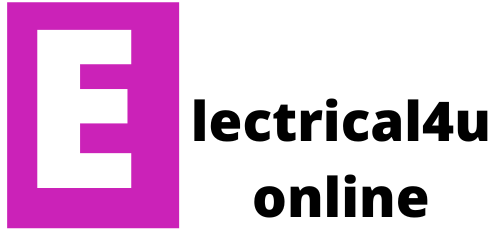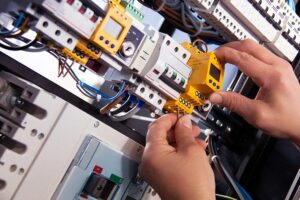Table of Contents
how to be a good electrician?
-
Technical expertise: A good electrician has a thorough understanding of electrical systems, including wiring, circuits, and other components. They are well-versed in electrical codes and regulations, enabling them to perform their work in compliance with safety standards and legal requirements.
-
Attention to detail: Given the potential risks associated with electrical work, attention to detail is crucial. A good electrician meticulously inspects every aspect of their work, ensuring that all connections are secure and all installations are accurate. They pay close attention to small details that could impact the functionality and safety of electrical systems.
-
Problem-solving skills: Electrical work often involves diagnosing complex issues and finding effective solutions. A skilled electrician is capable of analyzing problems, identifying their root causes, and implementing appropriate solutions efficiently. They can troubleshoot electrical malfunctions and address them effectively, minimizing downtime and ensuring the safety of the electrical system.
-
Communication skills: Effective communication is essential, both when interacting with clients and collaborating with other professionals. A good electrician can explain technical concepts in a clear and understandable manner, ensuring that clients and colleagues comprehend the work being done. They actively listen to clients’ concerns and preferences, incorporating them into the project’s execution.
-
Physical fitness: Electricians frequently work in physically demanding environments, often requiring them to perform tasks that demand strength and flexibility. They may need to work in confined spaces, at varying heights, or in challenging weather conditions. Maintaining good physical fitness enables them to handle the physical demands of the job effectively.
-
Time management: The ability to manage time efficiently is vital for meeting project deadlines and delivering high-quality work. A good electrician can prioritize tasks, create effective work schedules, and ensure that projects progress smoothly and are completed within the allotted timeframe. Effective time management skills contribute to overall project success and customer satisfaction.
-
Customer service skills: Building strong relationships with clients is essential for maintaining a successful electrical business. A good electrician listens to clients’ needs and concerns, provides expert advice and recommendations, and delivers exceptional customer service throughout the project. They maintain professionalism and ensure that clients are satisfied with the completed work.
-
Adaptability: Given the constant advancements in technology and changes within the electrical industry, a good electrician remains adaptable and open to learning. They stay updated with the latest industry trends, techniques, and tools, enabling them to integrate new practices into their work and provide the best possible solutions to their clients.
-
Safety consciousness: Prioritizing safety is non-negotiable in electrical work. A good electrician is well-versed in safety protocols and regulations, ensuring that they and their team adhere to all safety standards while performing tasks. They take proactive measures to prevent accidents, minimize risks, and create a safe working environment for themselves and others on the job site.
By embodying these qualities, an electrician can not only perform their work proficiently but also establish a reputation for reliability, professionalism, and expertise in the electrical industry.
Technical expertise to be a good electrician
“Technical expertise” refers to the comprehensive knowledge and skills that an electrician possesses in the field of electrical systems, components, and related technologies.
It encompasses a range of competencies that allow an electrician to effectively design, install, maintain, and repair electrical systems in various settings. Here’s a detailed breakdown of what technical expertise entails for an electrician:
-
Understanding electrical principles: A good electrician has a deep understanding of fundamental electrical concepts, such as Ohm’s law, voltage, current, resistance, power, and electrical circuits. They are familiar with the behavior of electricity and can apply this knowledge to different electrical tasks.
-
Knowledge of electrical codes and regulations: Electricians must be well-versed in the specific codes and regulations that govern electrical work in their location. This includes understanding the National Electrical Code (NEC) in the United States, which outlines safety standards and best practices for electrical installations.
-
Proficiency in interpreting blueprints and technical diagrams: Electricians often work from technical drawings and blueprints that outline the layout and specifications of electrical systems in buildings or projects. A good electrician can interpret these plans accurately, understanding the placement of wires, outlets, and other components.
-
Skills in electrical installation: This includes the ability to install various electrical systems and components, such as wiring, switches, outlets, lighting fixtures, circuit breakers, and distribution panels. Electricians must be proficient in connecting and securing these elements to ensure safe and efficient electrical functionality.
-
Troubleshooting and diagnostics: Electricians need to be skilled at identifying and resolving electrical issues. This involves using specialized tools and equipment to diagnose problems accurately, whether they relate to faulty wiring, malfunctioning equipment, or other electrical system failures.
-
Knowledge of electrical equipment and tools: A good electrician is familiar with a wide range of electrical tools and equipment, including meters, testers, power tools, and safety gear. They know how to use these tools effectively and safely during various stages of electrical projects.
-
Safety practices and protocols: Technical expertise also encompasses a deep understanding of safety practices and protocols in electrical work. This includes knowledge of how to handle hazardous materials, how to work safely with live circuits, and how to mitigate risks associated with electrical installations and repairs.
-
Specialized knowledge in specific electrical systems: Some electricians develop expertise in specific areas, such as industrial, residential, or commercial electrical systems. Specialized knowledge allows them to handle complex projects within their respective areas of expertise, ensuring that electrical installations meet industry standards and specific requirements.
By continually honing their technical expertise, electricians can confidently undertake diverse electrical projects, ensuring the safe and efficient functioning of electrical systems in various environments.
Don’t Leave Empty-Handed!
Install my Free Android App on Google Play:
Electrical Cables Most Common Tables “Cables Tables”
And, my Electrical Calculations App “Fast Electrical Calculator”
Discover more great content by subscribing to My channel
Looking to stay ahead of the game in the world of electrical engineering? Subscribe to my YouTube channel and gain access to exclusive content you won’t find anywhere else!
The staff I recommend
(Amazon Affiliate Links to products I believe are high quality):
- Economy 120 Volt/60Hz AC Power Source – Step-Down Voltage & Frequency Converters 1800W
- UNI-T Digital Multimeter Tester UT139C
- 50-Amp Extension Cord for RV “100ft”
- Voltage Stabilizer 110/220v
- Hair Dryer “best selling“
- TOSHIBA EM131A5C-BS Countertop Microwave Ovens
Disclaimer: This contains affiliate links to Amazon products. I may earn a commission for purchases made through these links.

